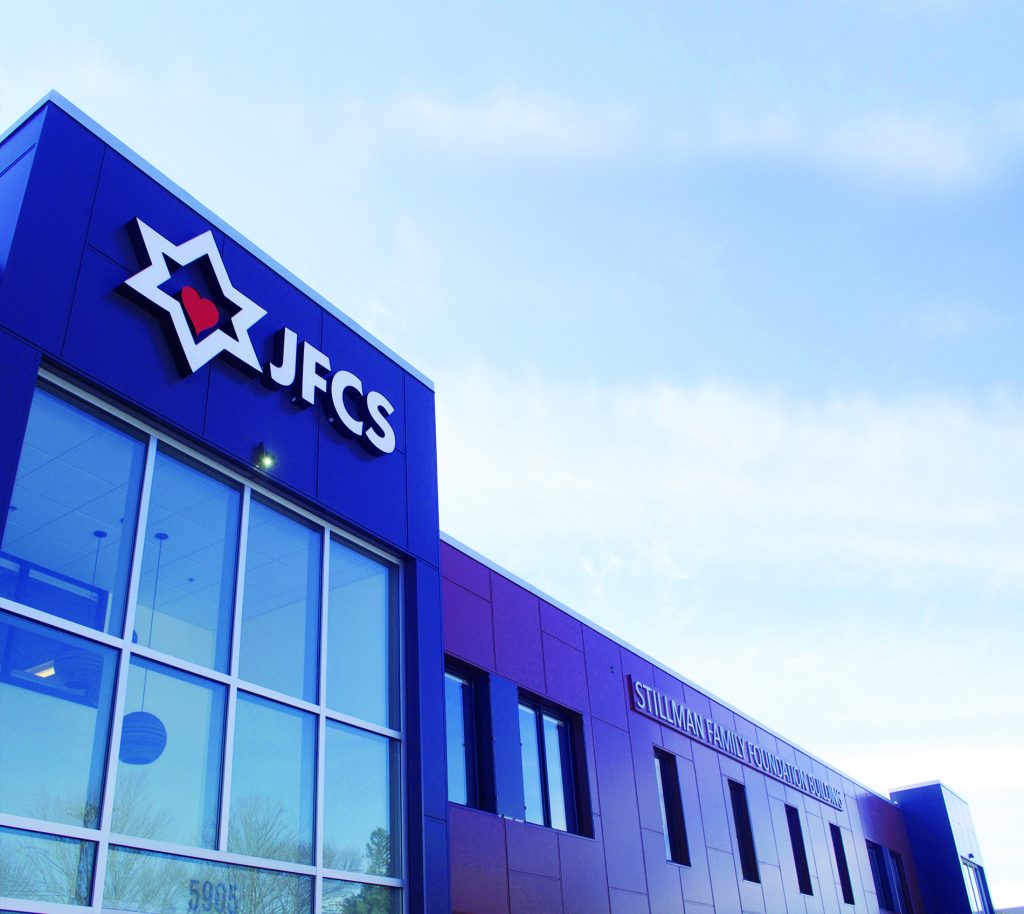Introducing Community Services Director Amy Weiss

With its Community Services programs, JFCS looks for opportunities that help build and sustain well-being and meaningful connections, creating a stronger community. Through partnerships with PRISM Food Shelf and initiatives such as the Mental Health Education Conference and others, we aim to be a valuable and contributing member of the Jewish community, broader Twin Cities community and beyond. JFCS is thrilled to introduce Amy Weiss, who was recently hired as JFCS Community Services Director.
Why did the Community Services Director position appeal to you?
Weiss: This position appealed to me because of the social justice and engagement threads that run through all of the programs in JFCS Community Services: food security, inclusion, J-Pride, Hag Sameach, PJ Library, and the Mental Health Education and Caregivers conferences. They all have a component of creating community and helping people find their voice in the broader population.
 The programs in Community Services do it all – from helping individuals cope with how to put food on the table and making sure people know they are cared for during the holidays to helping families deal with mental health and dementia issues, providing opportunities for Jewish adults with developmental disabilities to take part in social and educational events through Caring Connections, and engaging families in PJ Library.
The programs in Community Services do it all – from helping individuals cope with how to put food on the table and making sure people know they are cared for during the holidays to helping families deal with mental health and dementia issues, providing opportunities for Jewish adults with developmental disabilities to take part in social and educational events through Caring Connections, and engaging families in PJ Library.
I feel a personal connection to all of the programs, but PJ Library in particular has been a constant in the lives of my children. Our family has been lucky to be a part of the program for 10 years and my kids have grown up with the books and music.
The bonus part of the equation for me is working for JFCS. I made a very conscious decision to join an organization that is mission-driven and is responsive to the changing needs of the community. JFCS, in its more than 100 years of serving the community, has dedicated itself to serving the community and I’m excited to be a part of that.
What is your background?
I’ve spent most of my career in healthcare and advocacy non-profit organizations focusing on communications, building community partnerships, event management, volunteer engagement and development.
Many of my previous professional opportunities align with the programs in Community Services. I led public relations activities targeting maternal and newborn services and oncology services for a large healthcare organization, served for seven years as a volunteer HIV educator for Minnesota AIDS Project and another seven as the director of communications. In addition, I was the Director of Leadership Engagement and Development at Minneapolis Jewish Federation.
In the last few years, I’ve been running my own consulting business and managed the Minnetonka Farmers Market, where I expanded access to SNAP, strengthened a partnership between vendors and a food shelf and implemented a kid’s produce program to improve access to fresh fruits and vegetables.
JFCS’ Community Services programs cover a broad array of issues – food security, disability inclusion, mental health, LGBTQ topics, etc. – what do you enjoy about a role that covers many different areas?
There are so many things I enjoy about this position I’m not sure I can narrow it down to just one. I love that every day is different and I get to be involved in so many great programs and events.
And the staff of course! They are creative and enthusiastic about looking for new ways to engage participants and volunteers.
Every day when I’m out in the community I hear a story or meet someone whose life was impacted by JFCS. Just in the short time I’ve been here, I’ve met so many wonderful people whose lives have been touched by JFCS. It is gratifying to be a part of an organization with such a rich history in the community.
How do you see JFCS’ Community Services programs evolving over the coming years?
The department is going through some transitions as we grow our PJ Library program, add staff to better support the Mental Health Education and Caregivers conferences, and work to address food scarcity, as the number of seniors using food shelves has risen by 40 percent since 2012. We will also look for new opportunities to engage our Caring Connections participants in the community, continue to strengthen J-Pride by providing leadership around LGBTQ inclusion for the Jewish LGBTQ community and expanding the Hag Sameach program.
Over the coming months, we will be talking with our community partners, volunteers and participants as we explore new opportunities for engagement. That information will help inform our long-term planning and ensure that our programs are meeting the current and emerging needs of the community.
